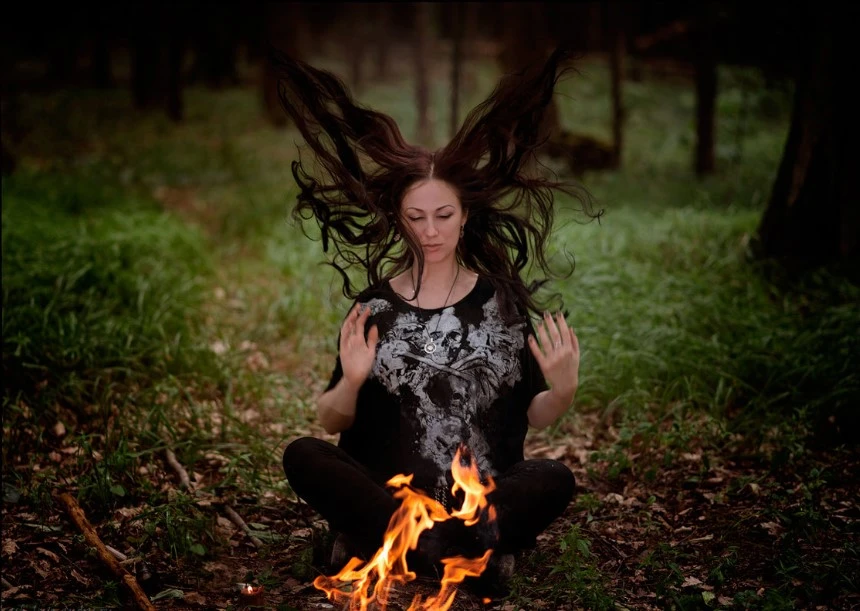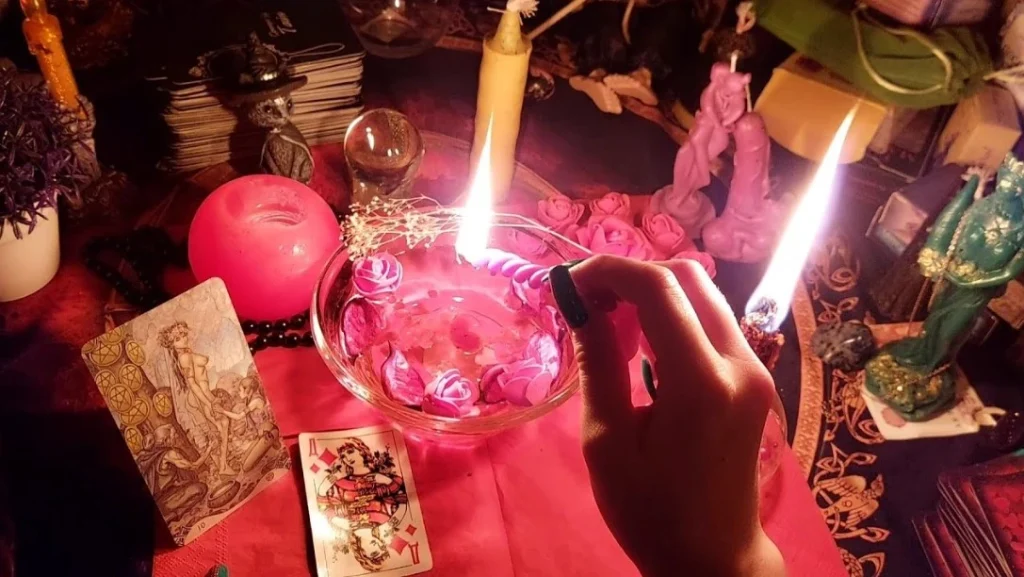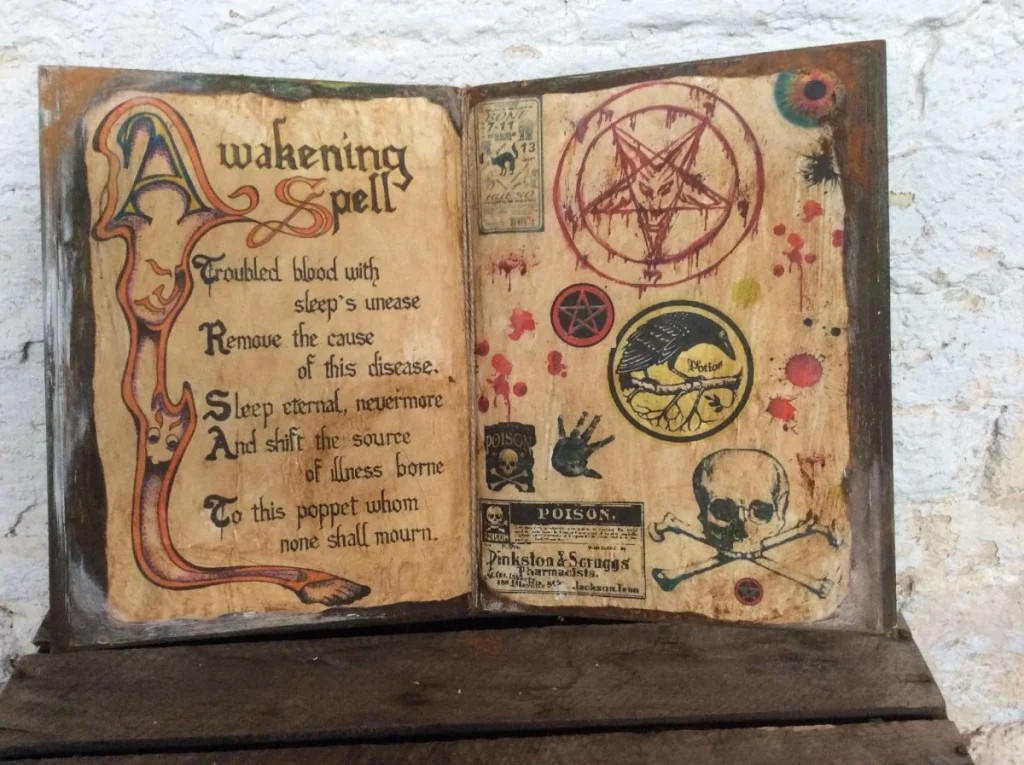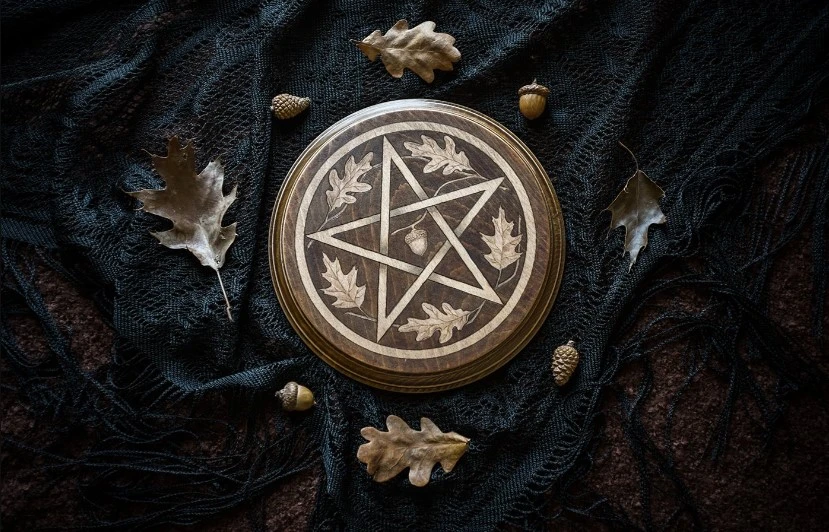In this article on Witch Symbols, we will explore the concept of using prayer against witchcraft. Throughout history, witchcraft has been a subject of fear and intrigue and is often associated with dark arts and malevolence. People from diverse cultures and faiths have sought protection against its perceived malevolent influence, and for many religious believers, the practice of prayer has been a potent weapon in this battle.
The Nature of Witchcraft
The nature of witchcraft is a multifaceted and intricate concept, which has evolved over centuries and differs significantly across cultures and historical eras. Understanding its complexities and its nature is essential for praying against witchcraft and its perceived malevolent influence. Here are some key aspects that shed light on the nature of witchcraft:
- Historical Perspectives: Witchcraft has deep historical roots, and its practices can be traced back to ancient civilizations. In some societies, witches were revered as healers and spiritual guides, while in others, they were feared and persecuted as practitioners of dark arts. The infamous European witch trials during the late medieval and early modern periods marked a dark chapter in history, leading to the execution of thousands of individuals accused of practicing witchcraft.
- Cultural Variation: Witchcraft takes on different forms and meanings across cultures. What might be considered witchcraft in one society could be perceived as spiritual practices or traditional healing methods in another. Cultural context heavily influences the perception of witchcraft consequently the perception of prayer against witchcraft is also influenced by the cultural context.
- Beliefs and Rituals: Examining the beliefs and rituals associated with witchcraft unveils how practitioners perceive and interact with supernatural powers, energies, and divination techniques, which, in turn, informs the manner in which they approach praying against witchcraft.
- Modern Revival: Contemporary perspectives on witchcraft have witnessed a revival, particularly within neo-pagan and New Age movements. Understanding these modern interpretations is crucial for a comprehensive view.
- Stereotypes and Misconceptions: Witchcraft has been marred by stereotypes, which can lead to misunderstandings and perpetuate bias. Recognizing these stereotypes helps in approaching the topic with an open mind. thereby empowering us to use prayer against witchcraft attacks more intelligently.
- Social Implications: In some societies, accusations of witchcraft can result in severe consequences for those involved. Being aware of the social implications adds depth to the understanding of witchcraft’s impact on communities.
- Prayer’s Role: Lastly, Understanding the nature of witchcraft plays a crucial role in crafting prayers effectively. When prayers acknowledge the complexity and diversity surrounding the subject, they become more meaningful and can make praying against witchcraft more effective. By having a deeper comprehension of the subject, individuals can approach their prayers with greater insight and clarity, potentially enhancing their impact and relevance in addressing concerns related to witchcraft.

Using Prayer against Witchcraft as a Means of Protection
Prayer, an integral part of many religious traditions, is seen as a channel through which individuals can communicate with the divine or a higher power. For believers, it is not only an act of supplication or thanksgiving but praying against witchcraft and other negative forces is considered a powerful tool to seek protection from any harm. The practice of prayer is grounded in faith, trust, and the belief in the benevolence and omnipotence of the divine.
1-Strengthening Spiritual Resilience
Strengthening spiritual resilience through prayer is a transformative process that empowers individuals to navigate life’s challenges with a fortified and unwavering spirit. It involves cultivating a deep and meaningful connection with the divine or a higher power, which in return could help immensely when praying against witchcraft. Here are some key aspects of how prayer contributes to building spiritual resilience:
- Connection with the Divine: Prayer serves as a direct channel to communicate with the divine, whether it is through worship, supplication, or gratitude. This connection establishes a profound relationship, providing individuals with a sense of guidance, support, and comfort during difficult times.
- Trust and Surrender: Prayer encourages individuals to place their trust and faith in the higher power they believe in. Surrendering one’s worries and fears while praying against witchcraft fosters a sense of relief and assurance, , knowing that they are not alone in their struggles.
- Finding Meaning in Adversity: Engaging in prayer enables individuals to find meaning and purpose in the face of adversity. It helps them perceive challenges as opportunities for growth, learning, and spiritual development rather than as insurmountable obstacles.
- Inner Peace and Calm: Prayer against witchcraft possesses a calming effect on the mind and soul. Engaging in prayer, particularly during times of distress when facing witchcraft concerns, instills a sense of peace that can counteract feelings of anxiety and fear.
- Coping with Loss and Grief: During times of loss and grief, prayer can be a powerful tool for healing and acceptance. It provides solace and support in processing emotions and finding strength to move forward.
- Resilience in the Face of Uncertainty: Praying against witchcraft fosters resilience in the face of uncertainty. It instills a sense of hope and inner strength, empowering individuals to confront uncertainties with courage and determination. Through prayer, they can release the need for absolute control and embrace the journey ahead with faith and trust in divine protection.
- Nurturing Positivity and Gratitude: Whether one’s using prayer against witchcraft or for other purposes, gratitude is often an integral part of prayer. Expressing gratitude in prayer encourages individuals to focus on the positive aspects of their lives, which can shift their perspective from challenges to blessings. This practice fosters a resilient and optimistic mindset, empowering individuals to face difficulties with a more positive outlook. Gratitude in prayer is a powerful tool for cultivating resilience and well-being in various aspects of life.
- Seeking Guidance and Wisdom: Prayer allows individuals to connect with the divine and gain insights into navigating life’s complexities. This pursuit of higher knowledge becomes especially valuable when praying against witchcraft or any other challenging situations. Through prayer, individuals can receive the wisdom and discernment needed to make informed decisions and confront the issues they encounter with a deeper understanding. Seeking divine guidance in times of uncertainty can provide clarity and direction, making prayer a valuable source of support and empowerment.
- Strengthening Inner Values: Consistent prayer against witchcraft or any other aspect of life reinforces one’s inner values and ethical principles. Engaging in prayer regularly provides a moral compass, guiding individuals to make decisions that align with their spiritual beliefs and values. Prayer serves as a source of strength and conviction, empowering individuals to uphold their ethical standards and navigate their lives with integrity and purpose.
- Sense of Community: In many religious settings, prayer is a communal practice. Engaging in prayer with others fosters a sense of belonging, support, and collective resilience within a community.

2-Invoking Divine Protection
Praying against witchcraft involves invoking divine protection, seeking to draw upon the benevolent and safeguarding aspects of a higher power. It requires a profound trust and faith in the existence and care of the divine force being addressed. Specific in intent, individuals request protection from potential harm and negative influences, especially those associated with witchcraft. Additionally, prayer against witchcraft may encompass protection for others, extending compassion and care to their well-being. The act of invoking divine protection brings assurance and peace, knowing that one is not alone in facing the malevolent influences of witchcraft. It aligns with spiritual values, surrendering control to the divine while seeking guidance and wisdom.
Regardless of the outcome, prayers for divine protection conclude with expressions of gratitude and acceptance, finding peace and trust in the divine’s will, especially in the context of praying against witchcraft
Here are some key aspects of invoking divine protection with prayer, whether the prayer is a regular prayer or specifically targeted as a prayer against witchcraft:
- Trust and Faith: The act of invoking divine protection especially when praying against witchcraft, requires a profound trust and faith in the existence and benevolence of the higher power being addressed. Believers approach prayer with the conviction that the divine is a loving and caring force that can offer protection and support.
- Specificity of Intent: When praying against witchcraft, individuals have the opportunity to specify the areas or aspects of their lives for which they seek safeguarding. These areas may encompass personal safety, health, and defense against external threats, such as negative energies or forces associated with witchcraft. Through prayer, individuals can request protection in these vulnerable areas, placing their trust in the divine to shield them from potential harm and malevolent influences.
- Gratitude and Acknowledgment: Expressing gratitude and acknowledging the divine’s presence in one’s life is often a part of invoking divine protection. Recognizing the blessings and guidance received reinforces the bond between the individual and the higher power.
- Personal Connection: The act of prayer against witchcraft attacks is a personal and intimate communication. It allows individuals to connect with the divine on a deep level, fostering a sense of comfort and reassurance.
- Protection for Others: Prayers for divine protection can also extend to loved ones, seeking to shield them from harm and negativity. Praying against witchcraft for others is an act of intercession showcases compassion and care for others’ well-being.
- Assurance and Peace: Invoking divine protection provides individuals with a sense of assurance and peace, knowing that they are not alone in facing life’s challenges. It creates a sense of inner calm and strength to confront difficulties with greater confidence.
- Divine Guidance: Along with protection that comes after praying against witchcraft, prayers may also seek guidance and discernment. Believers may ask for clarity and wisdom to make the right decisions and choices in life.
- Aligning with Spiritual Values: Invoking divine protection reinforces an alignment with one’s spiritual beliefs and values. It reflects a desire to live in harmony with the higher power’s teachings and principles.
- Surrendering Control: While seeking protection with their prayer against witchcraft, individuals often acknowledge their limited control over external circumstances. This surrender fosters a sense of humility and reliance on the divine for guidance and safety.
- Gratitude and Acceptance: Whatever the outcome, prayers for divine protection often end with expressions of gratitude and acceptance of the divine’s will. This helps individuals find peace and acceptance in situations beyond their control.
3-Peace and Calm Amidst Fear
Witchcraft has been historically associated with fear and uncertainty. Engaging in prayer against witchcraft can offer solace and comfort, providing believers with a profound sense of peace and calm amidst the tumultuous emotions and fear associated with the subject. Prayer becomes a source of strength and reassurance, allowing individuals to find comfort in their faith as they confront the perceived threats posed by witchcraft.
Here are some key aspects of how prayer provides peace and calm amidst fear when praying against witchcraft:
- Focusing on Faith: Engaging in prayer against witchcraft encourages believers to focus on their faith rather than their fears. By redirecting their attention to the divine and its protective nature, they can cultivate a more centered and composed mindset amidst fear.
- Finding Inner Strength: Prayer enables individuals to tap into their inner strength and resilience. They draw upon their spiritual beliefs to face their fears with courage, knowing that they are supported by the divine in their endeavor to protect themselves against witchcraft.
- Transcending Fear: Prayer helps individuals transcend fear by acknowledging that they are part of a greater spiritual framework. This realization empowers them to face their fears head-on, trusting in the divine’s guidance and protection.
- Emotional Healing: Praying against witchcraft offers emotional healing as believers express their fears, worries, and uncertainties to the divine. This act of communication can provide a sense of relief and emotional release, leading to a calmer state of mind.
- Strengthening Faith: Repeatedly engaging in prayer against witchcraft strengthens one’s faith and belief in the protective power of the divine. This strengthened faith becomes a pillar of support during times of fear and uncertainty.

4-Countering Negative Energy
Praying against witchcraft can be a powerful means of countering negative energy and malevolent influences. Negative energy, as perceived by believers, may stem from harmful intentions, ill-wishes, or harmful actions associated with witchcraft. Engaging in prayer with the specific intent of countering such negativity allows individuals to harness the protective power of the divine and promote positivity in their lives.
5-Community Support
In many religious communities, prayer is a communal practice. When facing the perceived threat of witchcraft, coming together in prayer against witchcraft fosters a sense of solidarity, strengthening the collective resolve to face challenges and overcome adversity.
The Intersection of Faith and Culture
The intersection of faith and culture when praying against witchcraft is a fascinating and intricate dynamic. It highlights the complex interplay between religious beliefs and cultural practices in addressing the perceived threat of witchcraft. Here are some key aspects that shed light on this intersection:
- Cultural Perceptions of Witchcraft: The understanding of witchcraft is heavily influenced by cultural beliefs and norms. In some cultures, witchcraft may be regarded as a malevolent force associated with harm and misfortune, while in others, it may be seen as a form of traditional healing or spiritual practice. These cultural perceptions significantly shape how individuals approach praying against witchcraft and the specific rituals or prayers they use.
- Syncretism and Adaptation: Many faith traditions exist in regions where witchcraft beliefs and practices are deeply ingrained in the culture. This has led to syncretism, where elements of indigenous beliefs and practices are incorporated into the religious traditions. As a result, prayers against witchcraft may include elements from both the native cultural practices and the established religious faith.
- Rituals and Symbols: Praying against witchcraft often includes the use of specific rituals, symbols, and protective talismans that hold cultural significance and vary depending on the cultural context. These elements are integrated into the prayer practices with the aim of enhancing the effectiveness of countering the perceived malevolent influence of witchcraft. The incorporation of culturally meaningful rituals and symbols adds depth and potency to the prayer, as individuals draw on their cultural heritage to seek divine protection and defense against the perceived threat of witchcraft.
- Role of Community and Elders: In many cultures, praying against witchcraft is not an individual practice but a communal one. The community may come together under the guidance of respected elders or spiritual leaders to collectively address the perceived threat. This communal approach reflects the cultural value of unity and collective action.
- Ancestral Connections: In some cultural contexts, prayer against witchcraft may involve seeking the guidance and protection of ancestral spirits. Ancestors are believed to hold wisdom and power, making them essential allies in guarding against negative energies.
- Protective Amulets and Charms: Culturally significant protective amulets and charms may be used during prayer against witchcraft. These items are believed to possess spiritual power and are integrated into the prayer ritual for added protection.
- Cultural Expressions in Prayer: Prayer against witchcraft may be enriched with cultural expressions, such as music, dance, and storytelling. These forms of expression allow individuals to connect more deeply with their cultural heritage while invoking divine protection.
- Adaptation to Modern Context: In contemporary times, the intersection of faith and culture in praying against witchcraft may continue to evolve. As societies modernize and become more globalized, individuals may adapt traditional practices to suit their current context while still preserving their cultural and religious identities.
- Resistance to Stereotypes: The intersection of faith and culture in praying against witchcraft can serve as a form of resistance to negative stereotypes and misrepresentations of indigenous belief systems. It reaffirms the cultural richness and spiritual depth of these traditions.
- Spiritual Empowerment: For many individuals, the intersection of faith and culture in praying against witchcraft is a source of spiritual empowerment. It allows them to draw strength from their cultural heritage and religious beliefs, providing a sense of agency and protection in the face of perceived threats.
While prayer against witchcraft is essential to many believers, it is crucial to respect the diverse beliefs and practices across cultures. Mutual understanding and dialogue can help bridge gaps between differing viewpoints and promote tolerance and harmony.
Examples of Prayers Against Witchcraft
Witchcraft and spiritual attacks are real threats that can affect our lives in harmful ways. Prayer is one of the most powerful spiritual weapons we have against these dark influences. Through prayer, we access the protection, guidance, and strength of God to help combat witchcraft and overcome attacks.
Here are some effective prayers against witchcraft:
- Dear God, you are my strength and shield. You are my refuge and protector. I ask for your help and protection against any witchcraft, spells, or evil plans against me and my loved ones. Reveal anything hidden and expose the works of darkness. Fill me with your holy spirit and cover me with your angelic protection. Let your blood covering be upon me and my family. I pray in the mighty name of Jesus, amen.
- Heavenly Father, I ask for your mercy and grace against all forms of witchcraft being used against my life. Come between me and any evil powers that are plotting against me. Rebuke and nullify any curses, spells, hexes, or charms meant to hurt me. Fill me with your peace that passes all understanding and let your light surround me and expose darkness. I plead the blood of Jesus over my mind, body and spirit. In Jesus’ name, amen.
- Almighty God, you said in your word that no weapon formed against me shall prosper. I pray against every evil tongue, scheme and plan of the enemy against me. Break and bind every witchcraft spell, charm or evil intention against me. Destroy every tempting snare and divide any unity of evil against my life. I ask this in faith, according to your promises in your word. In Jesus’ name, amen.
- Lord, I surrender my life and anxieties to you. I bind and rebuke witchcraft and witch spirits attacking or planning to attack me and my family. Cover us in the precious blood of Jesus and send your mighty warring angels to fight on our behalf. Let not any evil device formed against me prosper. I plead the blood of Jesus over us now and always. Amen.
Some people when praying against witchcraft, use specific psalms from the Bible as a form of prayer against witchcraft. For example, Psalm 91 is often recited as a way to ask for protection from all types of harm, including witchcraft. Other psalms that are commonly used for protection and deliverance include Psalm 23 and Psalm 121.

Other common prayers used against witchcraft:
– The “Prayer of Protection.” This prayer is often recited by Christians and is believed to offer protection from all types of evil, including witchcraft. The prayer asks for God’s protection and guidance, and is often accompanied by the use of holy symbols or objects, such as a cross or holy water.
– the “Prayer for Deliverance.” This prayer is often used by those who believe that they or someone they know is under the influence of witchcraft. The prayer asks for God’s help in breaking the hold that witchcraft has over the person and for protection from any further harm.
It is important to note that prayer against witchcraft alone may not always be enough to protect oneself from its harmful effects. It is important to also take practical steps to protect oneself, such as avoiding contact with those who practice witchcraft and seeking help from trained professionals, such as counselors or spiritual advisors.
Final Thoughts
Praying against witchcraft has been a steadfast source of strength for countless individuals seeking protection from its perceived malevolence. It serves as a profound expression of faith and reliance on the divine’s benevolence and protective power. For believers, prayer offers spiritual resilience, invokes divine protection, and brings a sense of peace amidst fear. It stands as a potent tool for countering negative energies while uniting communities in the face of adversity.
As we navigate the complexities of our diverse world, it becomes essential to embrace the richness of different cultural and religious perspectives on both witchcraft and prayer. In doing so, we foster greater understanding and appreciation for the beliefs that shape the lives of others. Together, we can strive for a world built on empathy, compassion, and respect, recognizing the significance of praying against witchcraft as a practice deeply embedded in the spiritual lives of many.





